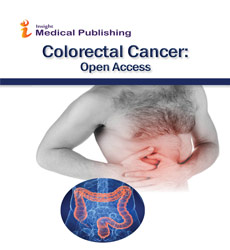Abstract
Accessing Information in Order to Manage The Strain of a New Demanding Role-A Qualitative Study of the Next of Kin of Patients after Colorectal Cancer Surgery
Objectives: The aim of this study was to explore next of kin’s experiences of information and their information needs after the patient’s discharge for colorectal cancer surgery.
Methods: Sixteen next of kin were interviewed twice during the first seven weeks after the patient’s discharge from hospital. The interviews were analysed through qualitative content analysis.
Results: The participants in this study needed to access information so as to manage the strain of a new and demanding role as next of kin to a person with colorectal cancer. That role consisted of different parts: managing their own feelings and anxiety, sharing and participating in the patient’s life and supporting the patient and the rest of the family practically and emotionally. The waiting times increased the experience of uncertainty and made the adaptation to the role more difficult. The participants needed to receive their own information and support in order to be able to handle and balance the situation. They needed to share different parts of the patient’s cancer trajectory with them and have access to the same information.
Conclusions: The next of kin needed to be included more actively in the patient’s cancer trajectory in order to manage the strain of being a support during the initial period at home. Participation in the information and the patient’s discharge planning are crucial in order to help patients regain control after colorectal cancer surgery.
Author(s):
Maria Lithner RN , Rosemarie Klefsgard RN , Jan Johansson MD and Edith Andersson RNT
Abstract | Full-Text | PDF
Share this

Google scholar citation report
Citations : 92
Colorectal Cancer: Open Access received 92 citations as per google scholar report
Abstracted/Indexed in
- Google Scholar
- JournalTOCs
- China National Knowledge Infrastructure (CNKI)
- Directory of Research Journal Indexing (DRJI)
- WorldCat
- Publons
- International Committee of Medical Journal Editors (ICMJE)
- Secret Search Engine Labs
Open Access Journals
- Aquaculture & Veterinary Science
- Chemistry & Chemical Sciences
- Clinical Sciences
- Engineering
- General Science
- Genetics & Molecular Biology
- Health Care & Nursing
- Immunology & Microbiology
- Materials Science
- Mathematics & Physics
- Medical Sciences
- Neurology & Psychiatry
- Oncology & Cancer Science
- Pharmaceutical Sciences

